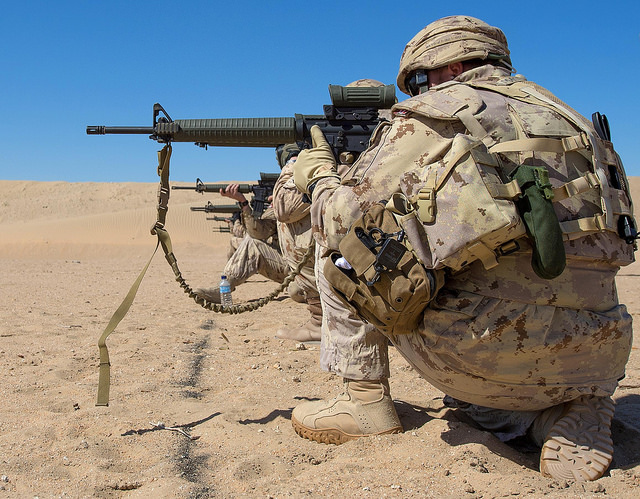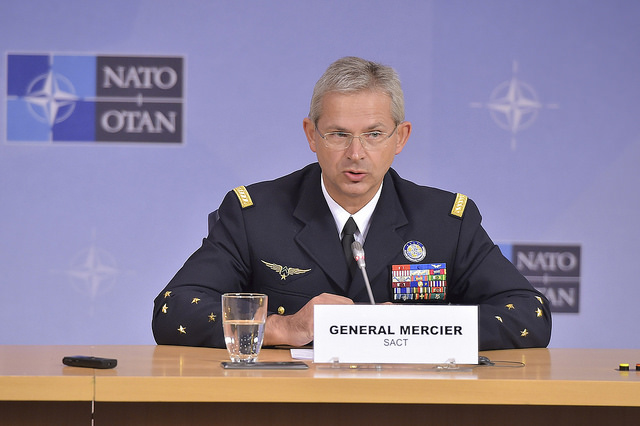The Canadian government has pledged 600 Canadian Armed Forces personnel and 150 Police Officers to United Nations Peace Operations in Africa. More specifically, Ottawa is considering deploying peacekeepers in States within the Sahel region or the Democratic Republic of Congo. No updates have been made since mission details were postponed for further deliberations. Some speculate that the government will send troops to Mali, where Canadian officials from Global Affairs Canada have travelled numerous times in recent months. A mission in Mali would support Prime Minister Justin Trudeau’s campaign promise to reengage the Canadian Armed Forces in UN peacekeeping. Such a decision stands in contrast with former Prime Minister Stephen Harper’s refusal to send ground troops to support dangerous operations in the region, instead providing transport aircraft.
The Tuareg rebellion occurred from January to April 2012, when the National Movement for the Liberation of Azawad (MNLA) violently fought for greater autonomy for ethnic Tuareg People in Mali’s northern region. Additionally, in march 2012, a coup against Malian President Amadou Toumani Toure by military officers critical of his lacklustre response to the rebellion, plunged the central government in Bamako into disarray. The MNLA took advantage of the post-coup confusion to seize the cities of Kidal, Gao, and Timbuktu, supported by Islamist militant groups that included Ansar Dine. When the MNLA declared independence from the Malian government, Ansar Dine and other extremist groups affiliated with Al Qaeda overthrew the MNLA. Which resulted in Islamist extremist control northern Mali from July 2012 until early 2013.
The Malian government called for foreign intervention and France launched Operation Serval in January 2013, regaining a majority of captured territory which was returned to the Malian government by February of the same year. The violence would lead to the UNSC passing Resolution 2100 in April 2013, establishing the United Nations Multidimensional Integrated Stabilization Mission in Mali (MINUSMA). The mandate of MINUSMA was to stabilize conflict, oversee ceasefires, support peace and reconciliation processes, and protect civilians. Currently, over 13,000 Military Personnel and 1,900 Police Officers are operating in MINUSMA.
Violent extremism in Mali poses the danger of spreading throughout the Sahel region as a result of weak borders which allows militants to launch cross-border attacks. Walter Dorn, peacekeeping expert at the Royal Military College in Kingston argues that there is a risk that ISIS might spread from Syria to Libya, and then to Mali, Chad, and Niger. He goes on saying that the transnational nature of the threat may force Canada to conduct multiple peace operations to combat spill over across several African States in the Sahel region. However, Dorn states that the main mission will be in Mali where Canada’s contribution could function on a minor scale to the ongoing mission that France is conducting with Operation Barkhane, deploying 3,000 troops across five states in the Sahel region from Burkina Faso, Chad, Mali, Mauritania, and Niger. As such, in the event Canadian Forces become involved in Mali and the broader Sahel region, they will be confronted with the difficult task of reducing the cross-border advantage held by militants.
Containing the spread of violent extremism and combating regional spill over necessitates a larger force than the potential Canadian contribution can provide. Without a greater coalition of allies willing to collectively contribute to this effort, Canada should reconsider whether the proposed involvement can attain the aims required to contain regional conflict. Increases in ongoing pledges in other regions of the world would prevent Canada from backing a large enough presence to securely combat the spill over risks in the Sahel region. Indeed, Canada is currently involved in Eastern Europe to deter future Russian aggression. Moreover, Ottawa is tangled in the Middle East in a mission against ISIS.
It is essential to bear in mind that the first step in securing Mali’s borders is the inclusion of the Tuaregs in the national political process. Indeed, being native to Northern Mali, the Tuaregs are well placed in policing the porous borders. For that matter, a peace agreement was signed in June 2015 between the Malian government and two coalitions of Tuareg armed groups. The former commander of the MINUSMA, Danish Maj.-Gen. Lollesgaard argues that “the only way to improve the situation here in the long term is to get the political process running,” by gaining “progress in the implementation of the peace agreement.” However, the occurrence of such progress continues to be disrupted by terrorist attacks that include attacks on two hotels in August and November 2015.
Photo: Canadian soldiers on a fire drill in a desert environment (2015) by Canadian Forces Combat Camera via Flickr. Photo courtesy of the Canadian Forces Combat Camera, Department of National Defense.
Disclaimer: Any views or opinions expressed in articles are solely those of the authors and do not necessarily represent the views of the NATO Association of Canada.




